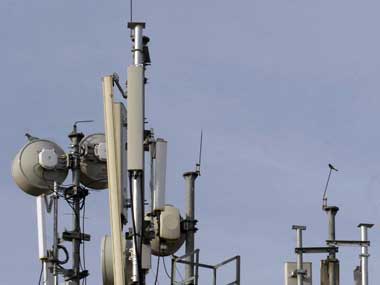New Delhi: A day after the Telecom Commission found it hard to decide whether to implement a flat Spectrum Usage Charge (SUC), Reliance Jio Infocomm stepped up pressure against any such move. SUC is an annual levy telecom companies need to pay the government and it is based on their Adjusted Gross Revenue. As of now, SUC is charged in various slabs and the Telecom Commission has been considering a proposal by sector regulator Trai to bring it to a uniform 3 percent of AGR instead of multiple slabs used to calculate the rate at present.
Reliance, which has to pay no SUC at all till now because it has no telecom operations despite having a pan-India 4G license, is required to pay SUC when it does begin operations at the lowest slab of 1 percent of AGR as per current license conditions. While incumbent GSM telcos like Bharti and Vodafone have been pushing for a flat SUC regime because their annual payouts will obviously be lower (at present some payout has to happen at higher slabs) at the flat rate, Reliance Jio has been dead against the 3 percent rate since this will raise its payout by three times.
[caption id=“attachment_1316721” align=“alignleft” width=“380”]  Spectrum pricing. Reuters[/caption]
Reliance has been vociferous in opposing the flat SUC regime, the Department of Telecom itself is in a muddle over how to handle this issue and the Telecom Commission has deliberated this complex issue many times without coming to a decision. Now, telecom secretary MF Farooqui says a decision will have to be taken before the spectrum auctions (slated to begin on 3 February) and the Telecom Commission is expected to hold yet another meeting before this week ends.
So the letter that Reliance wrote today is quite timely. This letter is addressed to Telecom Minister Kapil Sibal and in it the company has strongly opposed any move to make the SUC levy a flat charge. Reliance has accused incumbent GSM telcos of not paying for excess spectrum which they have always held and asserted that an escalating SC regime is in fact essential to recover the fee for spectrum which was administratively allocated to incumbent telcos earlier.
Impact Shorts
More ShortsThe SUC is an important tool with the government for revenue generation. In three years, revenue generated from SUC has almost doubled, from Rs 3435.41 crore in FY11 to Rs 6794 crore in FY13 (as per revised estimates). At present, SUC charges are anywhere between 3-8 percent.
Farooqui made it clear on Tuesday after the Telecom Commission meeting that though the government is open to considering mutiple options to arrive at a new regime for calculating this levy, it wants the principle of “revenue neutrality” to be maintained. What this means is the government obviosuly does not want to earn less revenue by making SUC a flat levy.
The Telecom Commission was earlier considering six different ways of making the levy flat while keeping revenue neutral but the telecom secretary indicated that more options are also being looked into.
Anyhow, Reliance has made it clear that it is against any move to make SUC a flat 3 percent charge. In the letter, which has been reviewed by Firstpost, the company has repeatedly referred to the spectrum which incumbent GSM telecom companies hold - in the earlier regimes, spectrum was allocated administratively and not through auctions.
“It is respectfully submitted that the present escalating SUC regime is essential for recovering fee for the spectrum which was allocated administratively beyond contractual obligations and without any upfront consideration and there cannot be any valid technical or economic justification for the demand for parity with BWA SUC across all spectrum bands. Further, there is no basis for demand for altering SUC on account of license migration,” Reliance said.
The license migration issue has been raised by GSM lobby group COAI, which earlier said that on migration to the Unified License, Reliance or other BWA LTE spectrum holders should also pay 3 percent SUC, not 1 percent.
It is clear from the way the telecom industry is divided over the SUC issue that the Government will find it very hard to please all, whatever decision it takes on this complicated matter.
Disclosure: The Reliance Group has funded the promoter of Network18, which publishes Firstpost


)

)
)
)
)
)
)
)
)



